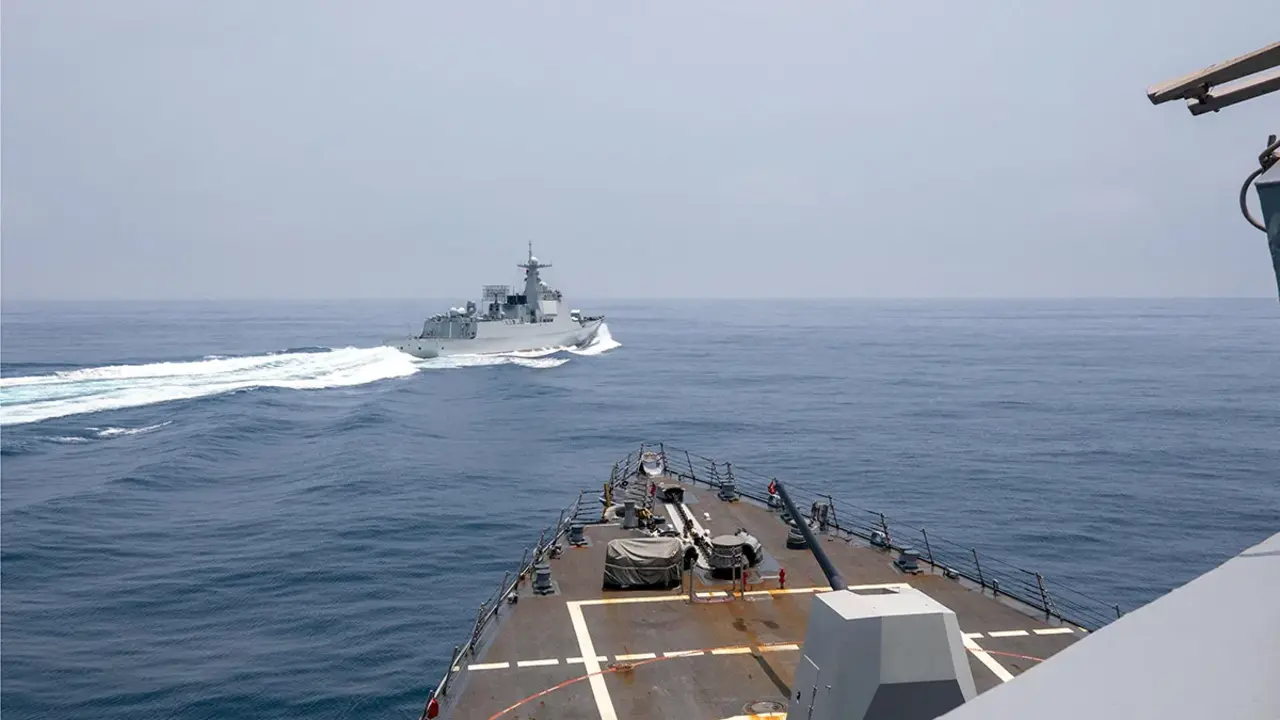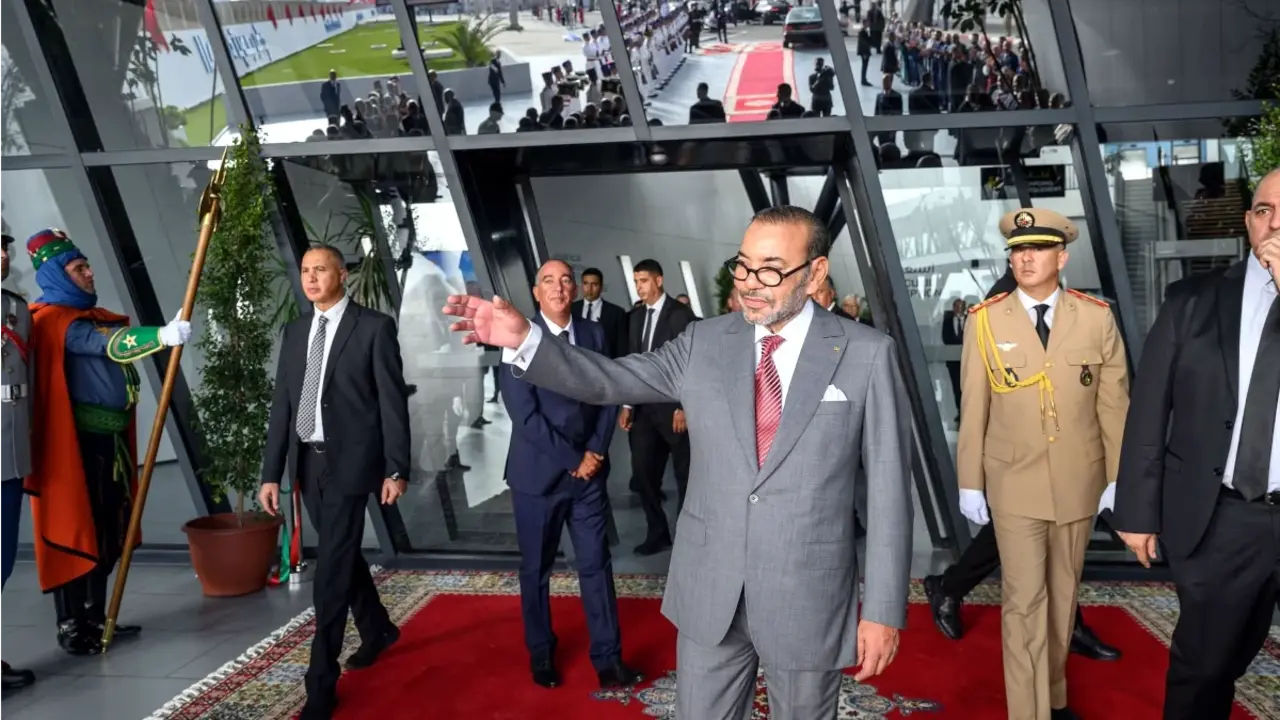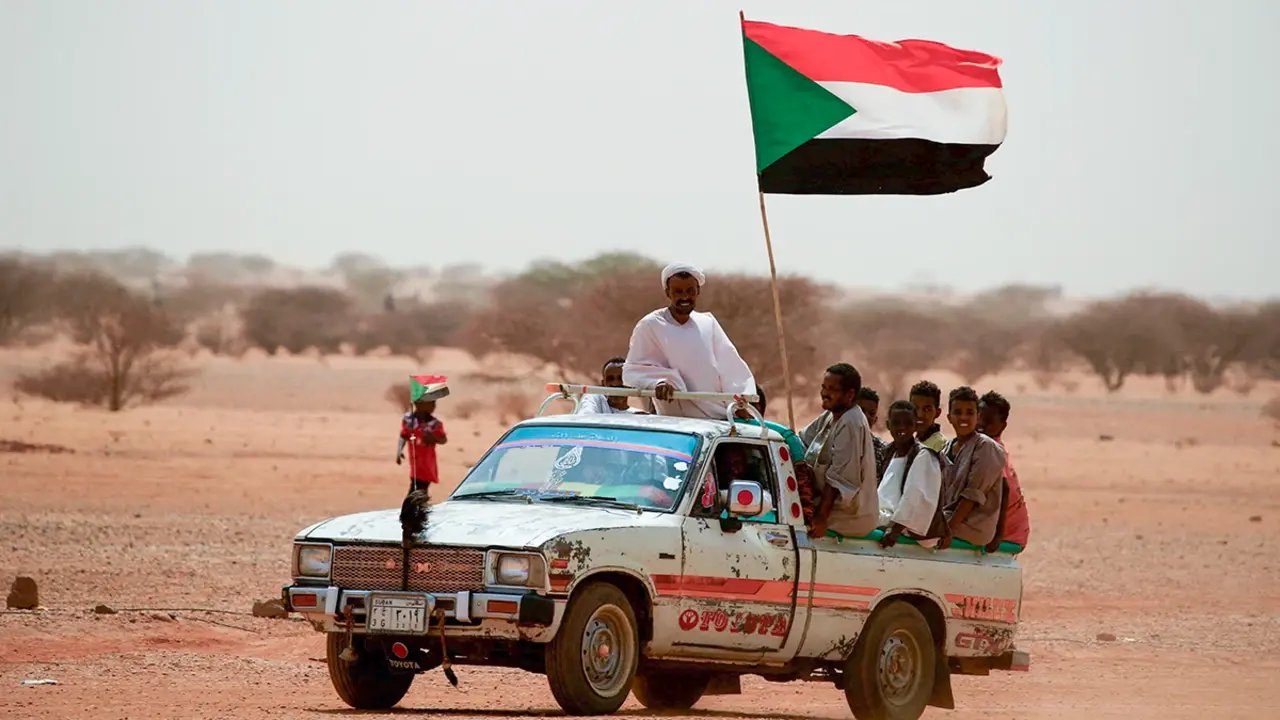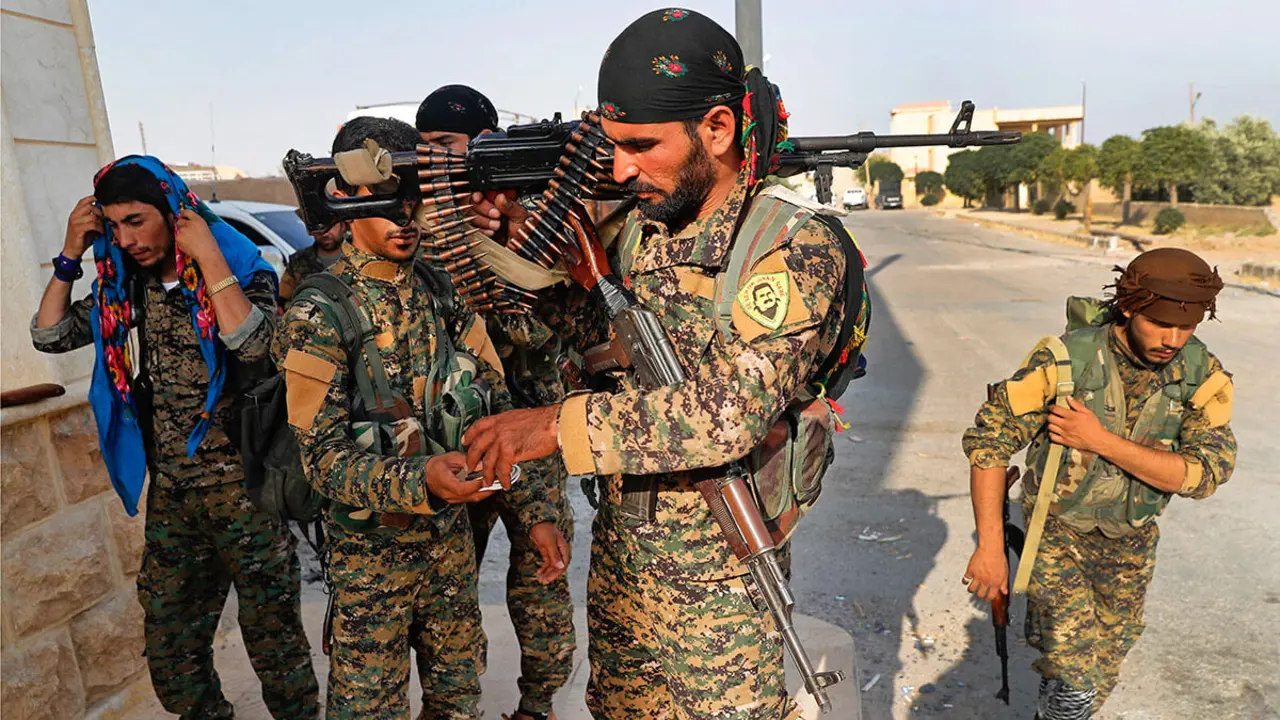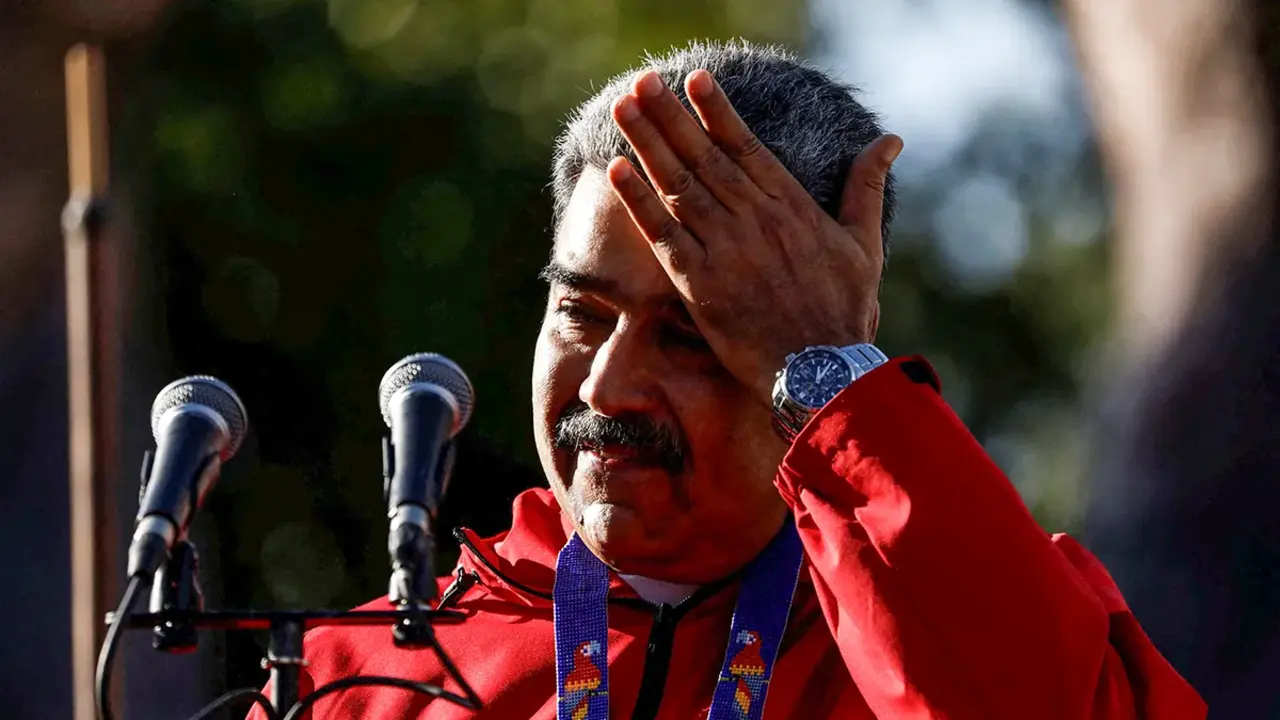The Middle East water crisis

Water could be one of the main triggers of future conflicts
The Euphrates and Tigris are two rivers of great importance in the Middle East region. In ancient times they were key to the development of Mesopotamia (land between rivers), the cradle of civilisation and its empires. The Euphrates rises in Turkey and flows down into Syria and then Iraq, before emptying into the Persian Gulf. This river used to bathe the historic city of Babylon and was referred to in the Bible as 'the river' because of its importance in a deeply desert region. The Tigris flows through the same countries as the Euphrates, although its course is in the easternmost part of these countries.
In southern Iraq, near al-Qurnah, the two rivers meet to form the Shatt al-Arab Canal, until finally, together, they end in the Arabian Sea.
As well as witnessing the birth of empires that have shaped today's civilisation, these two rivers have seen the bloodiest recent eras in the region. Such as the battle for Raqqa, which was part of a plan by the Syrian Democratic Forces called "Wrath of the Euphrates" to recapture the Syrian city, which was under the control of Daesh. The Tigris, for its part, experienced the bombing of Baghdad in 2003 and the battle for Mosul, two major Iraqi cities.
Today, both rivers are part of a water crisis affecting the areas they flow through. The waters of the Euphrates and Tigris are a precious commodity in a region facing increasing drought, making them a common point of contention between the countries that must share them. This crisis also exacerbates other existing problems, such as Turkish expansion in northern Syria and tension on the Iraq-Iran border.

"When the sound of rifles and drums of war in the region ceases, it will be replaced by conflicts in the Euphrates and Tigris basins. The Syrian-Turkish-Iraqi dispute over the waters of the two rivers will take an international turn and water will become a political weapon," warns Nabil al-Samman, an expert on international waters, to the Arab media Asharq al-Awsat.
Turkey has been singled out as the main culprit by its neighbours in this water crisis because of its planned Southeast Anatolia Project (GAP). Ankara has built 22 large dams, 14 of which are on the Euphrates River. The most important is the Ataturk Dam, a mega-construction on the border of the southeastern provinces of Adiyaman and Sanliurfa. On the Tigris it maintains eight dams. One of them, the Ilisu Dam, the largest in the country after the Ataturk Dam, has managed to retain half of the river's water resources and monopolise 90 per cent of the Euphrates' waters. The dam also created great controversy during its construction because of the disappearance of Hasankeyf, a town of great historical value that was flooded under water. Some monuments in the southwestern Turkish town were moved to other parts of the country, but many others from the Neolithic, Roman and Byzantine eras were not saved despite attempts by cultural and environmental activists.

These measures that dry up places in neighbouring countries and even the national territory have been developed by previous Turkish governments, although Recep Tayyip Erdogan continues the path of his predecessors. "There is no difference between protecting our water and protecting our homeland," the president said during the inauguration ceremony of the new Parliamentary Water Council.
"The waters of the Tigris and Euphrates are Turkish, and their water sources are Turkish, just as the oil wells belong to Iraq and Syria and they do not share their resources. They have no right to share in our water resources. It is a question of sovereignty," said former Turkish president Suleiman Demirel. However, Turkey has on occasion entered into agreements with its neighbours, as was the case in 1987. In 1987, Ankara made a deal with Damascus for 500 cubic metres per second of the Tigris in exchange for the government of Hafez al-Assad preventing members of the PKK (Kurdistan Workers' Party), Turkey's great enemy, from attacking Turkish dams.

It is precisely the Kurds who are suffering the most from Ankara's plans. Some villages in northern Syria and Iraq are experiencing a drop in river water levels. Kurdish authorities have repeatedly accused Turkey of reducing water levels, causing agricultural problems and energy shortages. "The areas under our control benefit greatly from the water supply of the Euphrates, so this is a blocking approach by the Turkish government to undermine our authority and damage our region," warns Badran Chia Kurd, Kurdish politician and vice president of the Autonomous Administration in northern and eastern Syria. Chia Kurd also recalls that interrupting the flow of water from a river to a country is a violation of international law.

Although Ankara has denied these allegations, experts say that the flow of water from Turkish territory has dropped from 500 cubic metres per second to 200 since the beginning of the year. This decrease has led to power cuts and has affected the dams in the Kurdish region of Tishreen and Tabqa. The former dam is also one of Syria's main facilities. "If this continues, we will be forced to stop producing electricity altogether, as our main priority is to ensure drinking water for our population," a Tishreen engineer told Voice of America. The weather is also bad in the region, which is suffering from a shortage of rainfall, so water from the Euphrates is needed for agriculture.
When Turkey invaded the Syrian town of Afrin in 2018, the first thing Turkish troops did was to seize the main dam and hydroelectric plant, cutting off the water supply in the town. Farmers in the town of Deir ez-Zor also denounce Turkey's blockade. "Our regions are 99 per cent dependent on the Euphrates River, so Turkey is taking advantage of the situation and cutting off the water to try to displace the population, as it is a major element," complains Anma al-Salem, vice-president of the agricultural section of Hajin, a small town in Deir ez-Zor.

The city of Al-Bab, part of Aleppo governorate, is currently suffering from a severe drought while a "humanitarian disaster" caused by high summer temperatures is a cause for concern. Under the slogan "Al-Bab is thirsty", local activists have launched a social media campaign to raise awareness of the situation. "We are informing all stakeholders, international organisations and Turkish government officials about the details of the water crisis in the city, and asking for help," Haitham al-Zain al-Shihabi, head of Al-Bab's local council, told Al-Monitor.
In addition to the drought that many areas of Syria are suffering from, the population is sometimes receiving poor quality or even contaminated water. According to studies by the humanitarian portal ReliefWeb, there has been a significant increase in the number of cases of diarrhoea in north-western Syria. While in May 2020 the figure was 7,355, this year during the same month the number of cases increased to 17,166.

Organisations such as Human Rights Watch have accused Turkey of "cutting off water supplies to regions of Syria in the midst of a global pandemic". They also point out that the lack of water affects particularly vulnerable populations such as those living in refugee camps. "The Turkish authorities' cutting off of water to communities in northwestern Syria is not only harmful to civilians, but could also affect Turkey itself," explains Michael Page, HRW's deputy Middle East director. Turkey's climatic situation is not favourable, as it faces a dry climate that makes food production difficult, making it more dependent on imports in the future. Despite the government's eagerness to build dams (more than 1,000 have been built in the last 18 years and another 90 are expected to be completed by the end of the year), opponents stress that the real problem is poor water management, coupled with other factors such as population growth, urbanisation and climate change. "We have running water, but you can't drink it," says Akgün Ilhan, a Turkish water rights activist.
With many farmers in arid rural areas opting to move to large cities such as Istanbul, Ankara or towns along the Mediterranean coast, this continued growth in urban areas requires new water sources. As Gökhan Özertan, Professor of Economics at Bogazici University in Istanbul, explains to Al-Arab, "this often means massive infrastructure projects, such as the construction of dams and pipelines, which affect rural areas, then the city's water consumption increases, so more dams are built. It's a vicious circle".

Another major problem and cause of Turkey's current situation is that some industries are developed in an unsustainable way, such as livestock farming. Guven Ekin, advisor to the mayor of the city of Smira, pointed out that the river basins that provided water to the town were deteriorating due to increased production of feed for livestock, which consumes a lot of water. Ekin added that they would encourage farmers to focus on products that have traditionally been grown in the region, as well as encourage more sustainable development. Water wastage is another issue that needs to be addressed by the country's authorities. According to a report by the Water Policy Association, almost half of Turkey's drinking water is lost through leaks before it reaches the tap.
For these reasons, keeping most of the water from a river that flows through more countries is not the solution, but rather correcting the shortcomings of the cities' water system and promoting sustainable development in certain sectors.
In addition to the water problems in Turkey and the drought in Syria, the picture in Iraq is bleak. According to the Water Stress Index (CWSI), 2025 will be the year of the great drought across Iraq. The Euphrates River will dry up almost completely and the Tigris will become a water-scarce stream. The European Water Organisation has also warned that the Arab country will completely lose river-related imports by 2040.

Mesopotamia's marshlands are one of the most worrying landscapes in the country. Years ago the marshes stretched up to 20,000 square kilometres, with waterways and tall, lush reeds. However, wars have withered this hotspot of biodiversity that was once the largest wetland in the Middle East. In the 1990s Saddam Hussein began reducing them to drive out the Shi'a, draining 10 per cent of their size. Since then they have continued to shrink, although in 2003, after the dictator's death, the United Nations Environment Programme began a process of restoration. This landscape has been declared a UNESCO World Heritage Site.
Despite maintenance projects, the current situation continues to dry up these marshlands just as the rest of the country is drying up. Iraq not only has to cope with Turkey's plans to block some of the water in the rivers, but also with Iranian dams built by Tehran since the US invasion. Iran has caused some Iraqi rivers such as the Alwand in the city of Khanaqin, near the Iranian border, to dry up. The Zab, a tributary of the Tigris, is also controlled by Iran through dams that divert and divide it into small streams inside Iranian territory, preventing it from reaching Iraq.

"We talked to Iran and Turkey to agree on a water-sharing protocol, but so far we have not had a response," said Iraqi Water Resources Minister Mahdi Rashid al-Hamdani. The minister announced that Baghdad plans to turn to the international community to combat the damage caused by the two countries. Ilisu's Turkish press is a major problem for Iraq's water supply.
The ministry has also reported that water levels in the Euphrates and Tigris have fallen by 50 per cent since April. They also point out that Turkish and Iranian reservoirs will cause a water deficit in Iraq of 10.8 cubic metres by 2035. Iran's dam projects affecting neighbouring Iraq are a response to the drought crisis in the Persian country.

Experts say water could become the focus of the biggest conflicts of the 21st century. According to UN figures, by 2050 water consumption will increase by 44 per cent to meet industrial and population demands. The international organisation has also provided data related to conflicts, pointing out that there are approximately 300 areas in the world where conflicts over water can be foreseen in 2025. Among these clashes is the crisis over the Tigris and Euphrates between Turkey, Syria and Iraq. The lack of political agreement, coupled with the effects of climate change increasingly hitting the region, make water the main trigger for future conflicts.

However, this tension is not only present in the Middle East, but also in Latin America and Africa. For this reason, water, or blue gold, is gaining more and more weight and importance to the detriment of oil, a material that has always been pointed to as the cause of the wars to come. As Ulrich Eichelmann, director of the Austrian environmental NGO RiverWatch, describes the situation, "if you see water as a weapon, dams are the new cannons. Iraq has the oil, Turkey has the water, and sometimes it's much better to have the water”.




